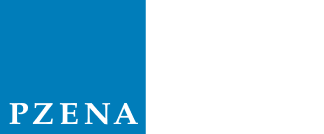Third Quarter 2025 Stewardship Insights
INTRODUCTION
Every year, in the third quarter, we profile some of the more significant proxy votes from the season. This proxy season differed from years past, as our ESG team took a more formalized role in the process, providing a synthesized view of key issues and vote recommendations to the relevant investment analyst. Below, we highlight some of the more notable themes from the season.
SEASON THEMES: BOARD COMPOSITION
The role of the board of directors is to oversee the company on behalf of its owners, i.e., the shareholders. Therefore, the proxy votes we cast for board members of any company we own are arguably some of the most important. However, assessing the effectiveness of the board as a whole and/or the individual board members can be very difficult from the outside looking in. Data suggests investors need to do more to evaluate the effectiveness of boards. For example, while average director support remains above 90% globally, studies indicate much higher rates of dissatisfaction with individual board members. A recent PwC study indicates 55% of boards believe they have at least one underperforming director1. We have highlighted two examples where our evaluation of individual directors informed our proxy voting decisions.
The Swatch Group AG: Swiss Luxury Watch Manufacturer
For the second consecutive year, we voted against all members of the Swatch Board of Directors to signal our strong preference for board refreshment. The board consisted of seven members, and those same seven members comprised each of the key board committees, including the audit committee. Boards typically recruit specific individuals to serve on key committees, based on skills and experience. Ideally, those committees would be majority, or, in the case of the audit committee, fully independent. It is our view that having the same seven members sitting on each of the key committees creates an environment for entrenched thinking, not least because many of these individuals are not independent and/or have had very long tenures on the board. We shared this point of view with company management and suggested a potential board member whom we think would be effective. We hope to see positive governance changes.
Coca-Cola Bottlers Japan Inc.: Bottler and Distributor of Coca-Cola Products in Japan
This proxy season, we raised our expectations of board independence in the Japanese market to majority independence, in line with how we think about independence in other regions where we invest. The independent outside director ratio for Tokyo Stock Exchange (TSE) Prime-listed companies is now 44%2, which, in our view, is sufficient to advocate for majority independence. Typically, we vote against all non-independent board members in cases where the board is not majority independent. We make our own determination of independence and do not rely on a third party’s definition. At Coca-Cola Bottlers Japan, significant governance improvements had been made, specifically returning cash to shareholders and improving return on equity (ROE). Consequently, we made an exception to our standard approach and voted for the reelection of the CEO and CFO, while voting against all other non-independent directors. Our intention was to signal our support for management’s recent governance improvements, while also indicating our preference for strong independent oversight of management moving forward.
EXECUTIVE COMPENSATION
Executive compensation is typically a hot-button issue every proxy season, even though average pay support levels remain steady or are rising. We have always focused more on incentive alignment with long-term shareholders, rather than absolute pay quantum or other structural features. It is not often that we encounter situations of significantly misaligned interests, but when we do, we vote against executive compensation proposals, whether binding or advisory in nature. Below is an example from this proxy season.
Pfizer Inc.: Global Developer and Manufacturer of Pharmaceuticals
Pfizer decided to extend the vesting cycle in its long-term incentive plan (LTI), allowing executives two additional years to meet the required performance criteria. Pfizer deemed this modification necessary given changes in the external environment outside of executive control, namely the rapid drop in demand for the COVID-19 vaccine a few years into the pandemic. We considered this context and acknowledged that the adjusted vesting schedule was still performance-conditioned. However, we ultimately decided to vote against both the compensation proposal and members of the compensation committee up for election. We viewed Pfizer’s move as effectively repricing the LTI, creating a misalignment with shareholder interests. Performance goals are set within a specific time frame for a reason. Allowing these goals to be reset mid-cycle undermines the integrity of setting performance goals in the first place.
SHAREHOLDER PROPOSALS
Shareholder proposals related to environmental and social issues fell in both volume and support this season. We are generally supportive of this shift, as shareholder proposals have become increasingly specific and overly burdensome on management. Historically, while many of the issues raised may have been material, we could not support the specifics of the individual proposals. There were still a few examples during the recent proxy season.
Shell plc: Global Oil & Gas Major
We voted against a shareholder proposal asking Shell to disclose how its liquefied natural gas (LNG) strategy is consistent with a pathway to net zero. Shell has made extensive disclosures about its LNG strategy and regularly publishes metrics to help shareholders assess progress. Given the uncertainties and dependencies in the various decarbonization pathways, we believe it would be counter to long-term shareholder interests for Shell to assume the global economy is on a deterministic path to net zero by 2050. We engage with Shell regularly on decarbonization and believe that management is sensibly deploying capex into areas of competitive advantage (e.g., carbon capture and storage, biofuels) at a pace consistent with the demand they see for these products. LNG remains a key bridging fuel in the transition, and we are supportive of Shell’s plans to continue to grow this business.
LKQ Corporation: Alternative Aftermarket Auto Parts Distributor
We generally support actions to improve shareholder rights, such as providing the right for shareholders to call a special meeting. However, we voted against such a shareholder proposal at LKQ, because we disagreed with the specifics of the proposal. Given the presence of activists among LKQ’s investors, we are wary of allowing the right to call a special meeting with only a 10% ownership threshold and no minimum holding period. This relatively low bar to call a special meeting could allow the activists to exercise outsized influence and encourage short-term thinking, counter to our interests as long-term shareholders. While we voted against the specifics of this proposal, we engaged with LKQ to share our preference for the right to call a special meeting with a higher ownership threshold (15–20%) and a minimum one-year holding period.
Footnotes
1. Source: 2025 Annual Corporate Directors Survey: Driving a culture of accountability in the boardroom
2. Source: Tokyo Stock Exchange, Pzena Analysis.







